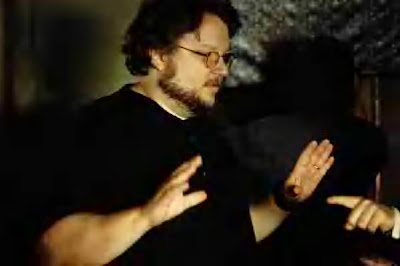The Five Most Important Movies for Guillermo del Toro

Guillermo del Toro made El Laberinto del Fauno, which stands as a crazy masterpiece. I would put it on my top ten list.
Okay, that's my choice: let's see also del Torro's own list as he gave it to Newsweek:
- Los Olvidados (Luis Buñuel's film is a searing indictment of urban conditions—but also a dark fable): a group of juvenile delinquents live a violent and crime-filled life in the festering slums of Mexico City, and the morals of young Pedro are gradually corrupted and destroyed by the others (Michael Brooke)
- The Bride of Frankenstein (moving graveyard poetry; its esthetic legacy can be traced through Edward Gorey, Tim Burton and every neo-Goth in town): Mary Shelley, author of Frankenstein, or The Modern Prometheus, reveals to Percy Shelley and Lord Byron that Henry Frankenstein and his Monster did not die; both lived, and went on to even stranger misadventures than before; as the new story begins, Henry wants nothing more than to settle into a peaceful life with his new bride; but his old professor, the sinister Dr. Pretorius, now disgraced, appears unexpectedly; eventually, he and the Monster blackmail him into continuing his work; the Monster wants his creator to build him a friend; and Pretorius wants to see dead tissue become a living woman.;Henry is forced to give his creature a bride (J. Spurlin)
- Greed (a brutal 1924 fable about the rotten state of modern man's soul): John McTeague was a simple slow man who became a dentist after working at the Big Dipper Gold Mine; he is now being hunted in Death Valley by his ex-best friend Marcus and the law; his lot was cast the day that he meet his future wife Trina in his office; she was with Marcus and she bought a lottery ticket; well, Mac fell for her and Marcus stepped aside; when Mac and Trina married, she won the Lottery for $5000 and became obsessive about the money in gold; Marcus is steamed as he stepped aside and now she is rich so he has the law shut down Mac as he has no official schooling for his dentistry; Trina fearful that they will take her gold away sells everything and takes all Mac earns when he is working; she adds to her stash of gold as they both live as paupers; when Mac has no job and no money, he leaves and Trina moves; driven to desperation at being poor and hungry he finds Trina and demands the gold (Tony Fontana)
- The Gold Rush (has at least a third of Charlie Chaplin's iconic moments): a lone prospector ventures into Alaska looking for gold; he gets mixed up with some burly characters and falls in love with the beautiful Georgia; he tries to win her heart with his singular charm (John J. Magee)
- La Chienne (Renoir's film about passion and murder urges us to accept that morality is a burden): cashier Maurice Legrand is married to Adele, a terror; by chance, he meets Lucienne (Lulu), and make her his mistress; he thinks he finally met love, but Lulu is nothing but a streetwalker, in love with Dede, her pimp; she only accepts Legrand to satisfy Dede's needs of money (Yepok)
I would be curios to know what del Toro thinks about Knife in the Water of Polanski, or about the movies of Kim Ki-Duk: the same idea of two universes flowing in parallel, unaware one of the other.
(Filmofilia)

0 Comments:
Post a Comment
<< Home